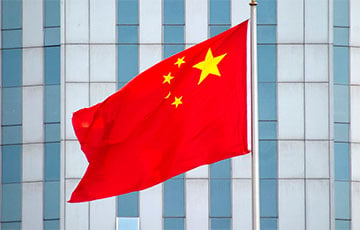China Engages Other Countries, Mao Tse-Tung To Fight Against Trump's Duties
- 14.04.2025, 10:05
- 3,422

Xi Jinping has begun a tour in Southeast Asia.
Chinese authorities have put government officials on ‘war footing,’ while diplomats have been tasked to persuade other countries to oppose US President Donald Trump's duties, Reuters reported, citing several sources.
China has been trying to avoid escalating the trade war for months. Diplomats have been working to establish a channel of communication with senior Trump administration officials, with some counting on a trade agreement, finalising the TikTok sale and even a decision on Taiwan. However, following the Republican's announcement of duties, which eventually rose to 145 per cent, Beijing decided to retaliate.
The propaganda department of the Communist Party's Central Committee was playing a key role in preparing the response, and government officials were posting clips on social media showing Mao Zedong promising, ‘We will never give in.’ Officials from the foreign and commerce ministries were ordered to cancel planned holidays and keep their mobile phones on 24 hours a day. China has been in contact with other nations against whom Trump has imposed duties, this included sending letters urging co-operation. Beijing has also made contact with US allies in Europe, Japan and South Korea, the two sources said.
While many countries are facing tariffs for the first time, China is relying on experience from previous rounds of trade war with the U.S. during Trump's first term. Authorities have instructed government officials to study the Republican's policies and suggest countermeasures that could be gradually tightened, the agency's sources said. As a result, China has created a retaliatory strategy that includes duties on US goods (authorities eventually raised them to 125 per cent), restrictions on some 60 US companies and tougher exports of rare earth metals.
On 14 April, Chinese President Xi Jinping arrived in Vietnam, then he is set to visit Malaysia and Cambodia. This is his first overseas trip in 2025 and it is aimed at showing Beijing's influence in the region, Bloomberg writes. ‘I would see it as Xi's attempt to create the alliances for resisting the United States in a trade war,’ Chinese scholar and Professor of the University of Toronto Lynette Ong told the agency.
Ahead of the visit, Vietnamese newspaper Nhan Dan published an article written by Xi in which he criticised protectionist policies, saying they would ‘lead nowhere’, and urged Hanoi to work with Beijing to protect international trade and sustainable supply chains. ‘There are no winners in trade or tariff wars,’ the Chinese leader emphasised. He supported increasing Vietnamese exports to China, building a railway to link the two countries, and co-operation in 5G and artificial intelligence.
Vietnam, Malaysia and Cambodia have previously expressed willingness to negotiate with Trump, for them the duties amounted to 46 per cent, 24 per cent and 49 per cent respectively. In an article for the Financial Times, the Republican's trade and manufacturing adviser Peter Navarro urged these countries to ‘stop letting China circumvent U.S. tariffs.’
On 9 April, Trump said the US had taken a 90-day pause in imposing new duties on more than 75 nations, but would retain a base duty of 10% for them. A few days later, Washington exempted smartphones, computers, external hard drives and a number of other electronic devices from ‘reciprocal duties’, the Commerce Department called it a ‘temporary reprieve’. Trump clarified that no exemptions were made for China.











